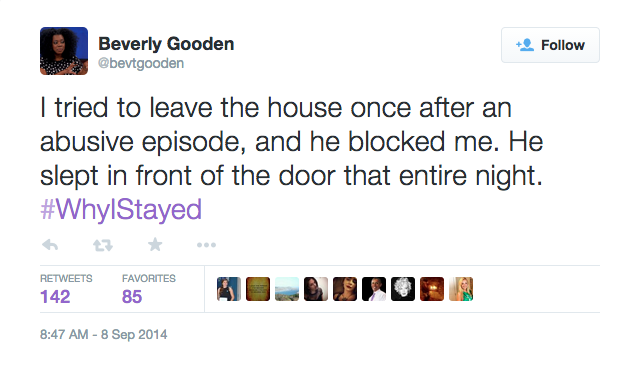America Hasn't Yet Solved Its Victim Blaming Problem
Judging by the media's perspective, it seems as though America has made massive strides this past year in its treatment of sexual assault. There have been a few landmark cases recently, including the national coverage of Columbia student Emma Sulkowicz’s decision to carry her mattress through campus until her rapist is expelled, as well as California’s decision to clearly define what constitutes consent with its “Yes Means Yes” law passed in September.
Then again, maybe it really hasn’t.
In November, CNN anchor Don Lemon interviewed Joan Tarshis, one of the 19 women who have accused Bill Cosby of sexual assault as of publication time. Lemon fired quite a few uncomfortably pointed questions toward Tarshis; such an interrogation indirectly questioned her accusation of sexual assault. “You know, there are ways not to perform oral sex if you don't want to do it,” Lemon told Tarshis in the live interview. Tarshis responded honestly and ignored Lemon's hurtful undertones. She explained that she was stoned at the time and the thought never crossed her mind.
READ MORE: Bill Cosby Doesn't Deserve Black People's Support
Recently, American culture has appeared to be taking steps toward eradicating the victim blaming that tends to accompany testimonies of sexual assault survivors. Courses concerning sexual assault at universities explicitly teach students that sexual assault is never the victim’s fault. Viral projects like “Project Unbreakable” focus on telling the victims’ stories as a method of healing, allowing them to speak out without shame.
But it seems that society has not fully grasped the weight of these concepts.
In cases of sexual assault on a national stage, like that of Tarshis, the first questions asked do not seem to be “Why did he rape her?” but rather “Why didn’t she stop it?” The same is true of cases of domestic violence. When TMZ released the complete video of Ray Rice punching his then-fianceé, now-wife Janay Palmer, many questioned why Palmer still married Rice. In fact, if you Google “Why did Janay…” the first suggestion is “Why did Janay marry Ray.” The second is “Why did Janay stay.” The third is “Why did Janay stay with Rice.” The fourth? A less complete “Why did Janay marry.”
READ MORE: Understand Janay Rice's Situation Before You Criticize Her

Such small questions seem to be indicative of a greater problem. They raise concerns about why these kinds of questions are being asked at all.
Aside from the fact that such content is arguably not an appropriate national conversation, the question of why Janay Rice stayed with Ray Rice ignores the blaring problem that a woman was beaten by her significant other. Even asking the question indicates that Janay Rice is somehow at fault for her violent treatment.
Public response to this spotlighted incident is starting to point out that questions like those seen on the Google search engine are grossly naïve. The day TMZ released the incriminating elevator video, women all over the nation took to Twitter, sharing their stories with the hashtag “#whyIstayed.” Beverly Gooden, a contributor to the New York Times and "Today", started the hashtag with her own story.

Gooden's story suggests that victim blaming is not only useless and insulting - it’s wrong. Unfortunately, it seems that no matter how many people point out its hypocrisy, much of America continues its offensive and insensitive behavior.
Reach Staff Reporter Caitlin Plummer here. Follow her on Twitter here.



